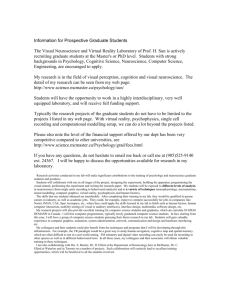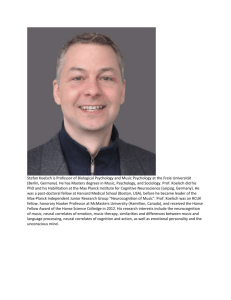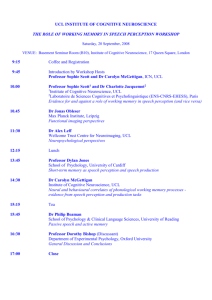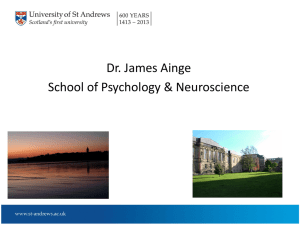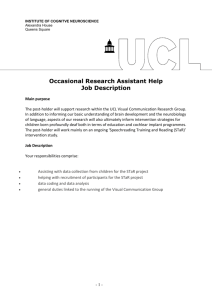report - EHBEA
advertisement
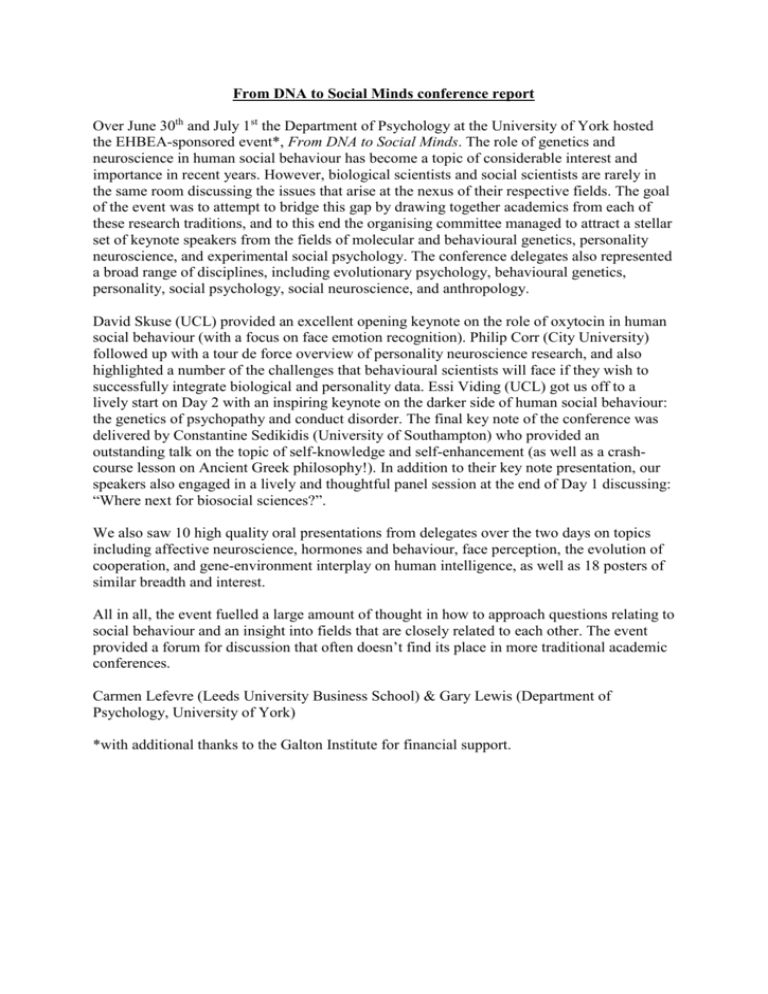
From DNA to Social Minds conference report Over June 30th and July 1st the Department of Psychology at the University of York hosted the EHBEA-sponsored event*, From DNA to Social Minds. The role of genetics and neuroscience in human social behaviour has become a topic of considerable interest and importance in recent years. However, biological scientists and social scientists are rarely in the same room discussing the issues that arise at the nexus of their respective fields. The goal of the event was to attempt to bridge this gap by drawing together academics from each of these research traditions, and to this end the organising committee managed to attract a stellar set of keynote speakers from the fields of molecular and behavioural genetics, personality neuroscience, and experimental social psychology. The conference delegates also represented a broad range of disciplines, including evolutionary psychology, behavioural genetics, personality, social psychology, social neuroscience, and anthropology. David Skuse (UCL) provided an excellent opening keynote on the role of oxytocin in human social behaviour (with a focus on face emotion recognition). Philip Corr (City University) followed up with a tour de force overview of personality neuroscience research, and also highlighted a number of the challenges that behavioural scientists will face if they wish to successfully integrate biological and personality data. Essi Viding (UCL) got us off to a lively start on Day 2 with an inspiring keynote on the darker side of human social behaviour: the genetics of psychopathy and conduct disorder. The final key note of the conference was delivered by Constantine Sedikidis (University of Southampton) who provided an outstanding talk on the topic of self-knowledge and self-enhancement (as well as a crashcourse lesson on Ancient Greek philosophy!). In addition to their key note presentation, our speakers also engaged in a lively and thoughtful panel session at the end of Day 1 discussing: “Where next for biosocial sciences?”. We also saw 10 high quality oral presentations from delegates over the two days on topics including affective neuroscience, hormones and behaviour, face perception, the evolution of cooperation, and gene-environment interplay on human intelligence, as well as 18 posters of similar breadth and interest. All in all, the event fuelled a large amount of thought in how to approach questions relating to social behaviour and an insight into fields that are closely related to each other. The event provided a forum for discussion that often doesn’t find its place in more traditional academic conferences. Carmen Lefevre (Leeds University Business School) & Gary Lewis (Department of Psychology, University of York) *with additional thanks to the Galton Institute for financial support.



